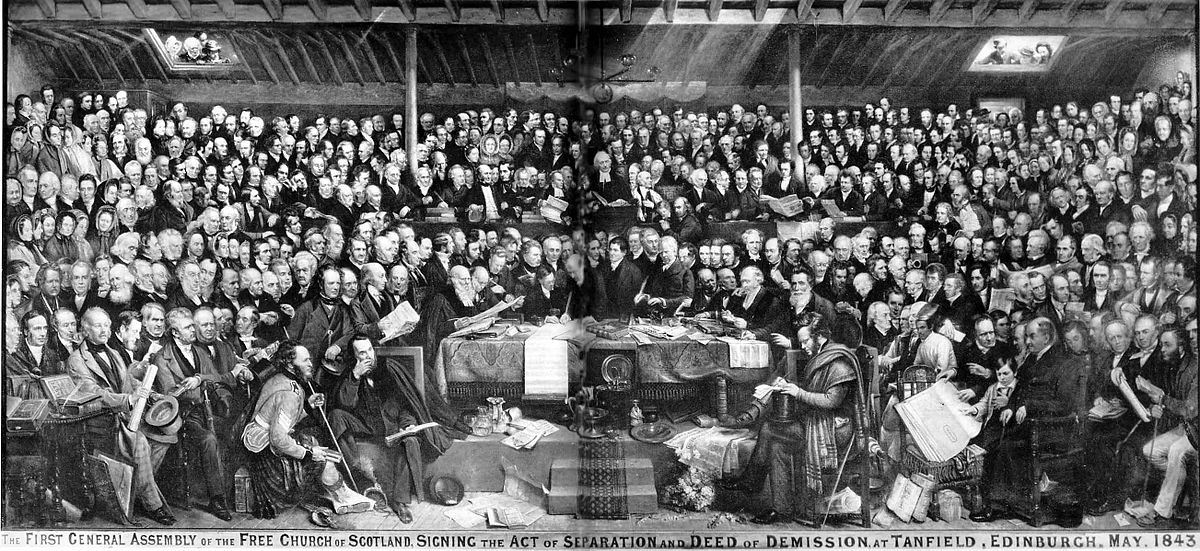History of the Free Church of Scotland
The Free Church of Scotland was formed in 1843 when most of the evangelical ministers in the Church of Scotland resigned because of state interference in its internal affairs.
Under a system known as Patronage, landowners could nominate and present ministers to congregations, irrespective of whether those ministers were evangelical or even whether the congregation wanted them. This was regarded by many as totally unacceptable.
They understood the historic position of the Presbyterian Church in Scotland to be that the Church and State were independent in their own spheres and that they ought not to interfere in each other's business, but rather help one another for the Christian good of Scotland.
The result was that in 1843, in what became known as The Disruption, a new denomination was formed. This was initially called the Church of Scotland, Free, but later became The Free Church of Scotland.

In 1852 the Original Secession Church joined the Free Church; in 1876 most of the Reformed Presbyterian Church followed suit. However, a leadership-led attempt to unite with the United Presbyterians was not successful. These attempts began as early as 1863 when the Free Church began talks with the UPC with a view to a union. A report laid before the Assembly of 1864 showed that the two churches were not agreed as to the relationship between state and church. The Free Church maintained that national resources could be used in aid of the church, provided that the state abstain from all interference in its internal government.
In the following years the Free Church Assembly showed increasing willingness for union on these open terms. However, after negotiations failed in 1873, the two churches agreed a 'Mutual Eligibility Act' enabling a congregation of one denomination to call a minister from the other.
Starting in 1895, union began to be officially discussed once more. A joint committee made up of men from both denominations noted remarkable agreement on doctrinal standards, rules and methods. After a few concessions from both sides, a common constitution was agreed. The respective assemblies of the churches met for the last time on 30 October 1900. On the following day the union was completed, and the United Free Church of Scotland came into being.
However, a minority claimed that they were the true Free Church and that the majority had departed from the church when they formed the UFC. After a protracted legal battle, the House of Lords found in favour of the minority and awarded them the right to keep the name Free Church.
The denomination currently has over 100 congregations in Scotland, as well as two in London, plus sister churches founded by mission work in India, Peru and South Africa. The Church has a full time seminary in the middle of Edinburgh for the training of its ministers and other Christian workers.
The Free Church is in fellowship with many other Reformed churches throughout the world and stands firmly in the tradition which accepts the Bible as its supreme standard and the Westminster Confession as its subordinate standard.
Central to our worship therefore is the preaching of the gospel - the good news of salvation through the sovereign grace of God in His Son Jesus Christ.